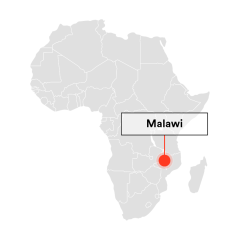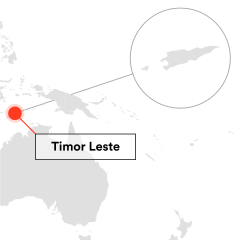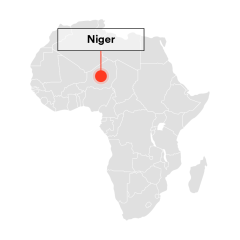Create women and girls’ safe spaces

Create women and girls’ safe spaces
Case Studies

Spotlight Initiative in Malawi has partnered with the Government and Civil Society Organisations (CSOs) to establish Safe Spaces across the country. These spaces are run by “Mentors” who are trained to support women and girls to navigate and challenge gender based violence. They are also trained to intervene and follow up in cases of child marriages.
Women and girls who access these spaces are able to access services including sexual and reproductive health, psychosocial support, and counselling. In addition, they are given opportunities to develop skills to negotiate and challenge harmful practices that fuel gender based violence. They are also able to access loans that can help them set up businesses to support their economic independence.
One example of a success story from this initiative comes from 2023, where a mentor from a Safe Space intervened with a girl called Emily who they heard was at risk of child marriage by inviting her to come to the Safe Space. Emily explained that through her engagement with the Safe Space she learned about how child marriage would violate her rights and so took the opportunity to return to school. Later, through this initiative, Emily joined a group of other survivors who were trained in business management and then granted a loan from the Spotlight Initiative Survivor Fund. She used this to set up a fishing business, the profits of which she used to pay for her school fees and rent a small room.
In 2021, close to 69,000 women and girls accessed services through Spotlight Initiative Safe Spaces, over 23,000 were trained in strategies to prevent and address gender based violence, and over 700 child marriages were followed up, resulting in 60% being annulled to allow the girls to return to school.



Spotlight Initiative in Timor Leste worked with the Ministry of Health, community health providers, local NGOs, the police, and the Ministry of Social Solidarity to develop safe spaces for survivors of VAWG. These safe spaces aimed at providing immediate care to support the safety of GBV survivors, raising awareness around VAWG and women’s rights, facilitating access to legal and medical services for survivors, as well as promoting economic empowerment for women affected by GBV. They also helped coordinate advocacy for policy changes to address GBV. These Safe Spaces took a holistic approach, offering a range of services that addressed immediate safety concerns along with legal, medical and psychosocial needs. They were also survivor-centred, prioritising the needs and wellbeing of survivors and empowering them to make informed decisions about their lives.
The programme faced two key challenges in setting up and sustaining these Safe Spaces. Firstly, they faced resource constraints, which made the provision of services difficult. To address this, they partnered with local and international organisations who were already providing these services to help secure the resources necessary to provide services to survivors. They also faced challenges around cultural sensitivity, since addressing GBV requires navigating cultural norms and traditions. They helped overcome this challenge through training for the team and awareness raising campaigns to build community support for the programme.
These Safe Spaces supported over 400 survivors to access counselling, legal aid and medical support over the course of the programme. Their awareness raising campaigns also reached thousands of community members and contributed to changes in attitudes towards GBV and their advocacy efforts have contributed to policy changes that improved the quality of services for survivors.



In Niger, the Spotlight Initiative programme set up a mentorship programme in safe spaces to strengthen the capacities and skills of out-of-school or never-schooled, married or unmarried adolescent girls aged 15-19. A comprehensive mentorship guide and curriculum was developed covering the following areas across 28 sessions:
- Life skills: Self-awareness, self-esteem and emotional management; values and behaviours; decision-making, problem-solving and negotiations; leadership, communication and organisations skills and team-working.
- Reproductive health: Women's reproductive system; emotional and relational life; menstruation and reproduction; personal and environmental hygiene; nutrition; risks of early marriage, pregnancy and FGM; pregnancy, abortion and birth; adolescent access to health services; SRH communications; family planning; STIs and HIV/AIDS; breast and cervical cancer; vaccinations; substance abuse.
- Gender and Human Rights: Gender awareness; GBV, women and girls' rights; risks of FGM.
- Economic capacities: Money and financial management; saving and planning; keeping money safe; budgeting and prioritising expenditure; borrowing wisely; resolving conflicts over money.
"In the safe space, I learned so much about GBV, menstrual hygiene, sexual and reproductive health, but also about my rights and responsibilities. I was ignorant but now I teach my sisters." - Participant in Zinder Safe Space
By the end of 2022, the mentorship programme was rolled out across 191 safe spaces and had reached 68,1000 adolescent girls.







